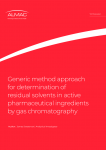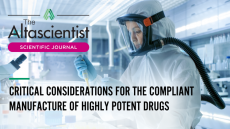Sumitomo, Dainippon marriage adds to Japanese M&A
Pharmaceuticals are to merge in an attempt to increase their
standing in international markets and fend off competition at home.
While the mega mergers that characterised the US and European pharmaceutical sectors in the last few years have abated (with the obvious exception of Sanofi-Aventis), Japan's drug companies now appear to be following suit, as the country's mid-cap companies struggle and Western firms encroach on the Japanese domestic market.
Commenting on the news, Datamonitor analyst Romita Das noted that companies such as Pfizer have created huge Japanese sales forces that outnumber that of any domestic company, forcing local firms to merge to remain competitive. Also, licensing opportunities for products from the top-tier Western companies - traditionally a staple of smaller Japanese companies - are declining as the multinationals are increasingly looking to directly market their products in the market.
Both Dainippon and Sumitomo have relied on in-licensed products to achieve sales growth, with over 50 per cent of 2003 ethical sales for both companies coming from this source. But they are now having to turn to in-house development and licensing of products from smaller players.
The Dainippon/Sumitomo marriage, to be conducted via a stock deal valued at around $2.2 billion (€1.65bn), comes after the proposed merger of Yamanouchi and Fujisawa that is due to come into effect next April.
Dainippon and Sumitomo say they expect to complete the transaction by 1 October 2005. The new entity will become a subsidiary of Sumitomo's parent, Sumitomo Chemical, which will hold a 50.1 per cent stake in the company.
The new entity to be established by the merger will rank among Japan's top 10 pharmaceutical companies in terms of domestic ethical drug sales, with a combined sales force of approximately 1,500 medical representatives and the two firms have projected 2007 sales of some 280.0 billion yen (€2.05bn).
The merger is expected to generate synergies in R&D activities, with enhanced profitability and competitiveness by combining the management resources of the two firms.
Dainippon and Sumitomo Pharma spokesmen indicated that the deal will create a drugmaker that is large enough to venture into the world's largest pharmaceutical market, the US, and also Europe, and have potential new drug candidates which are not already the subject of external marketing deals in their respective research pipelines.
The two companies have a complementary therapeutic focus, and the new company will have a broader pipeline with products falling into five key therapy areas: cardiovascular, central nervous system, diabetes, infectious disease and respiratory.
However, Datamonitor believes this pipeline has limited potential and is only expected to account for 6.5 per cent of the new companies' sales in 2010.
"As such, following the merger, the companies will still need to look to further licensing of products or even further M&A activity to boost its pipeline and future growth," according to Das.
Sumitomo has in Phase II clinical trials an antipsychotic drug, SM-13496, in the US, as well as SMP-114, a potential treatment for rheumatoid arthritis, in Europe. Meanwhile, Dainippon is developing an antidiabetes drug in the late stages of clinical development; the aldose reductase inhibitor AS-3201, which is how in preparations for Phase IIb studies in the US and Canada; and the antidementia drug AC-3933, which is in Phase II trials in Europe and Phase I in Japan.
Prior to the announcement of the merger, Datamonitor had forecast Sumitomo Pharmaceutical's ethical sales to decline at year-on-year rate of 3.6 per cent from $1.06 billion in 2003 to reach $818 million in 2010. Dainippon had a far better outlook, with sales expected to grow at a compound annual growth rate (CAGR) of 5.6 per cent from $1.0 billion in 2003 to $1.49 billion in 2010.
However if the merger goes ahead, Datamonitor forecasts the new company to grow at a CAGR of 2.4 per cent from the two companies' combined sales of $1.71 billion in 2003 to $2.21 billion in 2010.
"As such, the merger presents a quick answer to Sumitomo Pharmaceutical's bleak future, but appears to offer Dainippon little in comparison, apart from size and pipeline products." concludes Das.















